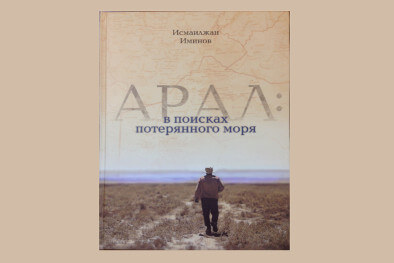In a recent address to the Majilis, Minister of Science and Higher Education Sayasat Nurbek outlined the current state of the scientific sphere in Kazakhstan, emphasizing the importance of young scientists' contribution to the country's rapidly developing field of scientific research. Now, in Kazakhstan, 22.5 thousand researchers, among whom 37% have scientific and academic degrees - an increase of 2% from 2022.
The age composition of researchers shows a high proportion of young people: 34% are under 35 years old, 43% are in the 35-54 age category, and 23% are 55 years and older. Despite this, there is an aging trend in the management staff in research institutes.
The Minister also shared statistics on organizations engaged in research and development activities in the country. There are 414 such organizations, with only 26% functioning within the public sector. A significant share, 43%, is occupied by businesses actively investing in scientific research, indicating businesses' increasing involvement in this area.
Kazakhstan is proud of its scientists, who make significant discoveries and contribute to world science. Let's open the page of scientific achievements of modern Kazakhstan and find out who is on the list of eight bright scientists of the country.
Ratbay Myrzakulov
Ratbay Myrzakulov is an outstanding scientist in the field of theoretical physics. He authored several works on the theory of gravitation and cosmology. Myrzakulov was widely recognized for his discoveries in the field of integrable nonlinear equations, which are now called "Myrzakulov equations". These discoveries have significantly boosted the development of physics and mathematics in Kazakhstan and beyond. He is actively researching the accelerated expansion of the universe and the possibilities of modifying Einstein's theory.
In 2022, his works were awarded the International Scopus Prize in physics and astronomy. Now, the scientist's Hirsch index on Scopus is 47, which indicates a huge contribution to the scientific community. Recently, Myrzakulov was included in the ranking of 2% of the world's most respected scientists, as well as in the lists of the most cited scientists for 2021 and the entire history of science.
Talgat Musabayev
A cosmonaut and hero, Talgat Musabayev has contributed to the development of Kazakhstan's space program, working in cooperation with international space agencies and training young cosmonauts.
He was educated at the Moscow Aviation Institute, where he successfully defended his master's and doctoral theses, focusing on the reliability and efficiency of space-oriented systems.
In the mid-90s, Musabayev began his space journey, serving as a flight engineer on the Soyuz TM-19 spacecraft, participating in important missions to repair the Mir orbital station. This period was special as Kazakhstan had just won its independence, and his status as a cosmonaut of the sovereign Republic of Kazakhstan symbolized a new beginning for the country. While serving in the Russian Armed Forces, Musabayev became the first Kazakh to represent his country in outer space.
Over the years, Musabayev has amassed an impressive body of experience, including three space flights lasting nearly a year and seven spacewalks. Under his leadership, the National Space Agency of Kazakhstan (NSA RK) has traveled a development path many countries take decades to overcome. Musabayev greatly impacted the development of the country's space infrastructure, contributing to the creation of innovative satellite systems and ground control complexes and training outstanding specialists in space technology.
Tolganay Temirgaliyeva
In 2015, Kazakhstani scientist Tolganay Temirgalieva, in collaboration with Japanese professor Suguru Noda, launched an ambitious project to develop supercapacitors that promise to revolutionize the field of energy storage. The distinctive feature of these devices is their ability to charge quickly and transfer energy within minutes, as well as their superior durability - 10-500 times longer than traditional capacitors' charge-discharge cycle.
The secret of the new supercapacitors' efficiency lies in their design: they have a high energy capacity using porous activated carbons derived from environmentally friendly organic material - rice husks and apricot kernels. These carbons have an outstanding electrical capacitance of 180-200 farads per gram, making them an excellent choice for use in capacitors.
Tolganay Temirgalieva and her team emphasize the environmental safety and economic benefits of the discovery. The input materials for carbon production are biowaste, which not only reduces the cost of production but also prevents the pollution associated with the disposal of traditional batteries. This innovation opens up opportunities for various applications, including cell phones, electronic energy metering devices, security systems, and medical equipment.
Thus, Tolganay Temirgalieva's research and development have taken an honorable place in the list of scientific achievements in Kazakhstan, opening new horizons for sustainable development and innovation in energy storage.
Aidarkhan Kaimov
Aidarkhan Kaimov holds a Ph.D. in Information Security and is a professor at SRU. Kaimov is the author of more than 40 scientific papers in information technology and robotics and the creator of five patented innovations.
He has played a key role in developing a pioneering teaching methodology that reaches high school, college, and corporate employees. This methodology has proven extremely successful, with over 856 students completing it and being employed by leading companies in Kazakhstan and worldwide.
His academic achievements have been recognized in his home country and the international community, including Europe and the USA. The partnerships he has established with the premier league of world universities and research centers underscore his contribution to advancing research and education in Kazakhstan.
Serik Fazylov
Serik Fazylov, Professor and Doctor of Chemistry, is an outstanding scientist in the field of chemistry. His research activities include in-depth analysis of organic synthesis, chemistry of natural components, and physiologically active substances. He is actively involved in developing new bioactive compounds based on alkaloids known in medical science, such as cytisine and quinine. Together with his colleagues, Fazylov investigated chemical features and spatial structures of the obtained alkaloid derivatives, opening new horizons for the scientific community.
His bibliography includes more than 100 scientific papers, including three monographs detailing the results of his research.
Prof. Fazylov is also involved in developing innovations in the field of agrarian sciences in Kazakhstan. At the head of a team of scientists from the Institute of Organic Synthesis and Carbon Chemistry, he has created a composite fertilizer called Gumint, whose formula allows it to be adapted to specific agricultural needs by adjusting the content of the necessary macronutrients. This fertilizer, produced from chicken manure and coal industry waste, helps preserve soil moisture, thereby increasing yields by 15-20% and plant resistance to adverse weather conditions.
Holding the position of Deputy Director for Research at the Institute of Organic Synthesis and Coal Chemistry in Karaganda, he actively supports the development of organic farming in the country. He emphasizes the growing demand for organic products and is confident that organic agriculture has great potential to stimulate the economic growth of the country in the near future, especially in the context of the relevance of the issues of food quality and conservation of natural resources.
Khadichahan Rafikova
Khadichahan Rafikova, a scholar of distinction, holds the position of Senior Lecturer at K.I. Satpayev Kazakh National Research Technical University and Kazakhstan-British Technical University. K.I. Satpayev Kazakh National Research Technical University and Kazakhstan-British Technical University. Her research career was boosted when she entered KBTU's doctoral program in 2011, where she decided to focus on developing green chemistry technologies minimizing environmental damage at every stage of her research.
Rafikova and her team worked for two years to develop a new class of rhodium-iridium catalysts based on phosphorus-containing ionic liquids, a special class of salts with a low melting point. These catalysts in oil refining processes open the door to forming competitive and environmentally friendly technologies in Kazakhstan.
Its scientific developments offer a revolutionary approach to the petrochemical industry, replacing traditional harmful acid solvents with more environmentally friendly aqueous reagents. This innovation is an important step towards reducing the industry's negative environmental impact.
Rafikova was awarded a grant from CRDF Global to attend the University of Alabama in the US for contributing to science and becoming one of Kazakhstan's ten most promising scientists. She has also been awarded three innovative patents and published four articles in prestigious international journals.
Zinetula Insepov
Zinetula Insepov, who holds Ph.D. and DSc degrees, holds senior academic positions at Purdue University and MEPhI, while he has also been involved in the founding of the Skolkovo and MIT institutes. Insepov has also been recognized for his work at academic institutions such as Kyoto University and Argonne National Laboratory.
Insepov is the author of "Cluster Ion-Solid Interactions: Theory, Simulation, and Experiment," which analyzes concepts in cluster physics and related fields. This work includes innovative methods and research results from several foreign universities and laboratories.
In 2015, Insepov and a team of scientists made significant progress in acoustoelectronics, using graphene to amplify high-frequency acoustic signals at minimal energy cost. This discovery, confirmed in 2017, opened up new possibilities for applying graphene in micro- and nanoelectronics.
The research revealed the unique phenomenon of hornless amplification of acoustic waves when a graphene film is exposed to a direct current, which heralds a revolution in various fields, including defense and space communications. The finding also contributes to reducing energy losses on high-voltage power lines by 20-40%, offering new solutions to the long-standing problem of corona discharges.
Thus, scientists in modern Kazakhstan play a prominent role in the global scientific arena. They have made significant contributions in various fields, from space research to agrarian sciences.




















